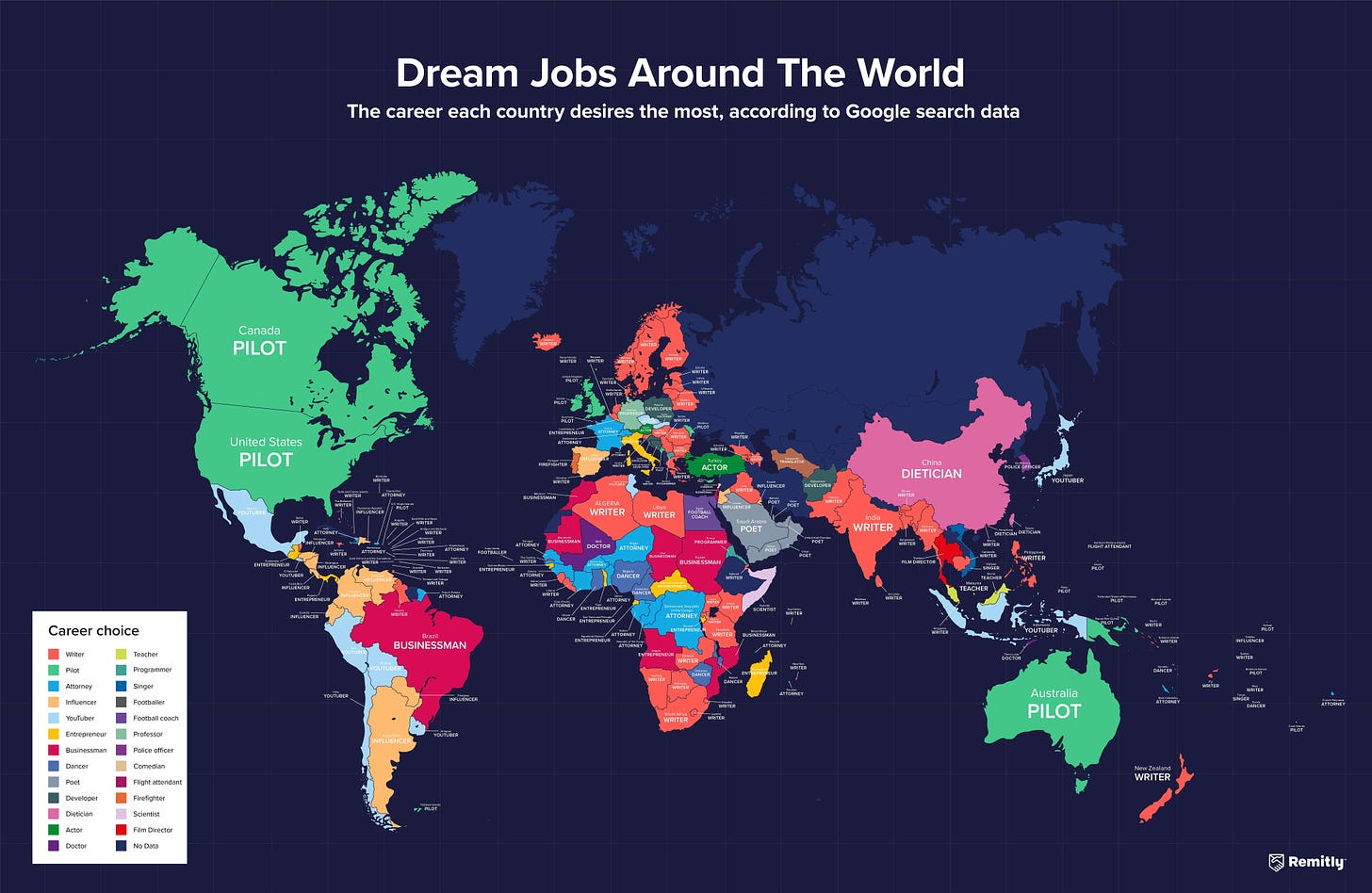Essays
NC can be a leader in safe biotech research: This last month I wrote an op-ed for a think tank in my home state arguing in favor of regulation that promotes a high-reliability culture in biotech labs.
Importantly, it’s not that accidents should be punished. Rather, because it’s complex work, they should be expected, and should lead to improvements *across the field* that reduce the chance of them happening again. In essence, biolabs need to be “high reliability organizations.” These are institutions that have a risk-conscious mindset and understand that to prevent major disasters, minor accidents and near misses need to be treated as cues to create better, more-robust systems. A quintessential example is airlines — transparency and shared learning from mistakes is one of the key reasons fatalities have decreased 95% over the last 25 years.
At the object level, the obvious motivation for this essay is the lab leak hypothesis and my bafflement that dangerous gain of function research is still happening. But at the meta level, this comes from me reflecting on what it means to operate in a multipolar world of powerful technologies.
We’re doing cooler and cooler stuff with technology, but the nature of these technologies is they increase the leverage of smaller and smaller actors. As the Yudkowsky-Moore law memorably puts it, “every 18 months, the minimum IQ necessary to destroy the world drops by one point”. And it’s not always straight forward to just get people to stop doing dangerous stuff; outside of their individual incentives to race forward, meaningful regulation is hard to design and implement. Almost all regulation has an implicit ‘chess pieces’ ethos - that relevant actors in the world can be known ahead of time and controlled. In a multipolar world, where there are thousands of relevant actors and new ones emerging unannounced, that’s not tenable; it’s a strategy for security theater and failure.
Rather, norms that promote virtue and which solve coordination traps - situations where individual incentives prevent people from coordinating effectively - are both more effective and more likely to respect individual liberty and not quash positive experimentation. In this specific case, I think it looks like mandating accident / near-accident disclosure so public and private labs can learn from one another.
Protectionism will slow the deployment of AI: A description of my view that we’ll see protectionist regulation enacted in the next two years aimed at large language models.
The current government is ineffective at long term strategic thinking that maximizes the general good of the public, no argument there. However, that’s the wrong lens to view things through - from a public choice/class perspective, the government is quite responsive to certain specific interest groups.
Create small batch, artisanal knowledge: An elaboration on my points from last month that I think it’s virtuous to create digital gardens to share with friends and family. Let us resist the imperative to surrender to the top down borg media machine and celebrate the humble meme manufacturers in our local community.
Given the increasing fracturing and demise of the global market of information, I think we should retvrn to privileging our local networks. Friends, family, contacts we know personally or that are nearby us in the global network graph.
I’m calling it artisanal knowledge, because a.) I like pretentious words like artisanal and b.) it’s local and derived from personal work. Think globally, read locally.
I created a new section called Essays1 for the writing I do that doesn’t fit cleanly into a once a month newsletter. Now that you’ve been given fair warning, you might start to receive an email or two in between my monthly updates.

Career Stuff
Per my new year newsletter resolution I figured I’d share more about my day to day.
For the past year I’ve been doing independent tech consulting; some contracting work, some building ideas with friends. It has its ups and downs to be sure - not every project works! - but overall I appreciate the freedom and variety. The coolest/only public facing work was community tooling for Art Gobblers, an art-tech-game project; the rest of my paying projects could probably best be described as the honorable yet humble work of moving data that lives in system A into system B and dealing with the customers so the engineers don't have to.
In the next few weeks I’ll be releasing a project2 I’ve been working on, pairing real-time transcription with large language models. It evolved out of an attempt to generate datasets from somewhat esoteric audio sources; I was struck by how good audio to text has become, and with the emergence of powerful language models you can manipulate the transcriptions in easy, productive, and fun ways.
Looking towards the future, my intention is to continue doing this consultancy/product work, but starting to funnel it more towards a single area. There’s a few I’ve been exploring in earnest:
Tooling and business models for interpretability: I’ve been following the progress in interpretability research with great interest. At this point it’s clear that AI is going to be widely deployed whether or not anyone understand how it actually works (which btw, we as a species don’t). Given the choice, I’d like it if we did.
So there’s both a need for quality research into interpretability, and I’d argue a need for business models that create economic conditions that accelerate the development and deployment of applied tools. I think the industrial labs of the early and mid-20th century are dramatically under-appreciated in terms of their impact effect on meaningful innovation - academics get the credit because they colonize the work of tinkerers - and these labs only existed because of the fusion of capitalist business structures with scientific inquiry.
I’ve been thinking and talking with some folks about the overlap of applied interpretability with insurance and risk management. Being able to offer guarantees of performance, the type of guarantees that real engineering can offer - aka we know how this bridge works and why it won’t fall down - should decrease risk, which insurers would champion and which firms would want to adopt to decrease insurance payments, creating a virtuous cycle of adoption.3 A relevant example of this is cyber insurance4 which has helped drive improvements in security.
Products for Governance: Institutions are not doing well, and I’d like to find ways for them to adapt and get renewed for the current decade. I think of institutions as being about the challenge of collective governance - they are the agents that enforce the rules, provide the public goods, and ideally contain the ‘energy’ to orient to and confront new problems.
Mainline politics is broken, but nature abhors a vacuum, and I expect to see more public-private governance strategies emerge that tackle the problems left in the absence of a functioning state. Governance as competitive advantage was a meme in 2020/21 crypto, and like all things from that time and sector was 5% true idealism 95% scammer wearing the idealistic person’s bloody face, but you can see echoes of the idea start to emerge in the real economy. The promises of algorithmic transparency post-Musk takeover of Twitter, the bipartisan demands for oversight and digital rights, etc.
Some examples of fruitful areas of inquiry are arbitration and mediation firms and outsourced moderation platforms; I’m pro-deliberation, and I expect improving systems already designed around deliberation can enhance the flexible law and governance which currently covers a lot of our market and civil interactions.
Always happy to chat with folks about this stuff (you can reply to a newsletter and I’ll get your email).
All that being said, I do respect that it’s sometimes best to keep the way you make your money and the way you intellectually engage separate; painful failures in my heady youth taught me that you gotta first and foremost make something people want and that is also self-sustainable. So we’ll see what opportunities end up presenting themselves that also fulfill these crucial criteria.
Oh one other thing in the career realm: last year I joined the Swift Centre superforecasting team, helping to create accurate and decision relevant forecasts on world events. They’re ramping up and I expect to do more writing and work with them in the next quarter.
#links
Dream Jobs Around the World: A new map of the clash of civilizations?
Playground AI: My favorite image gen tool so far, great built in support for general editing and masked editing.
ElevenLabs: Extremely realistic text to audio, with single shot voice cloning - clone a voice from a clean sixty second audio sample. Very cool, and unsurprisingly basically as soon as it launched there’s been abuse of it.
The People You Meet in Prison: Personal anecdotes about high-profile people the author met in prison.
As far as prison reputations went, Shkreli’s was one of the best. He might be called Prison Bro. No one had a bad word to say about him at MDC. Martin did a lot to cultivate that. He was known for having tons of self-help books sent in for prisoners on his unit. Shkreli’s unit was probably the best read in the building. The inmates had the added benefit that when they were done with the books, they had a supply of rolling papers for their K-2.
Summary : "No: The Only Negotiating System You Need for Work and Home" by Jim Camp.
28. As a negotiator aspiring to excellence, you must, at all costs, avoid showing need. In order to avoid showing need, you must never feel it. I cannot say this enough: **You do not need this deal.**
Second-order effects of SpaceX decreasing the cost of rocket launches:


I’d respect our ruling class more if they stuck to the old ways and helped us identify and punish evil magicians.



#good-content
Avatar the Last Airbender: I started rewatching the original series; it’s still so good. Peak animated wholesome content.
Pentiment - this is a really beautiful game. You’re a 16th century painter exploring a historically accurate world in a narrative adventure murder mystery. If you like Disco Elysium, I think you’ll like this.
Music: ABBA’s The Winner Takes it All, Avu-chan’s Stayin’ Alive, and Kip Moore’s The Bull.
Until next time,
Ben

Longtime readers will remember I had previously declared a new section of the bengoldhaber media empire called Tinkerings. I was struck by the fun whimsy of that name at the time, but then later I hated it, and I’m now going with the more stately name Essays. Also, this time everybody is opt-in by default.
My target is to ship an MVP in mid February, but deadlines being what they are I’m more confident I’ll release by mid March.
While I think the economic logic means this will happen regardless (and there are companies starting to do this now), there’s an important degree of contingency - it’s better if it happens sooner, and also important that high quality products are differentiated from snake oil products that purport to decrease risk but in fact don’t.
There’s theoretical reasons to expect insurance to improve risk management and not just spread the risk around with financial engineering, but I haven’t seen definitive strong evidence that this has definitely happened in cybersecurity. One alternative explanation for improvements to software security are brand reputation by dominant firms like Apple and Google which can force ecosystem wide improvements; that’s another argument in favor of incentives existing for business model interpretability.




